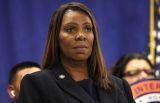College Rankings Influence Enrollment; the Real Reason University Leaders Dislike 'Party School' Label
ByLeaders of U.S. colleges know there is a certain stink to being named a top-10 party school, but as it turns out, various rankings are directly related to out-of-state applicants.
According to the Hechinger Report, a new study suggests being named to Princeton Review's list of top party schools costs a college eight to nine percent enrollment from out-of-state students. On the contrary, being named to U.S. News and World Report's top schools earns colleges an extra six to 10 percent enrollment.
"It raises important questions about the large role these arbitrary rankings can play in the college selection process," Randall Reback, an associate professor at Columbia University's Barnard College and co-author of the study, told the Hechinger Report.
According to the study, to be published in March in the journal Educational Evaluation and Policy Analysis, higher education officials have a reason to disagree with the methods behind the rankings.
College and university heads say rankings like "top party schools" are unscientific and general, which the study authors found to be true. Princeton Review bases its rankings largely on surveys from students and administrators. However, some schools have been found to alter their statistics to help themselves gain a better placement on better rankings lists, according to a separate study.
Other Princeton Review rankings that affect enrollment are "happiest" and "most beautiful" campuses, which raise enrollment by 2.9 percent and 2.3 percent respectively. "Least happy" and "most unsightly" campuses, lower enrollment by five percent and 5.2 percent, respectively.
The new study goes a step further than one from Harvard Business School in 2011 that found schools to gain about one percent enrollment for every place they move up on U.S. News and World Report's top schools ranking.
With so many different rankings, more than just the aforementioned, several schools are independently coming up with their own methods. They hope to eliminate falsified statistics and the national rankings they influence. Even President Barack Obama agrees, as he announced in Sept. 2013 an education reform proposal that would eventually rank public institutions and disburse government funds accordingly.
© 2025 University Herald, All rights reserved. Do not reproduce without permission.








